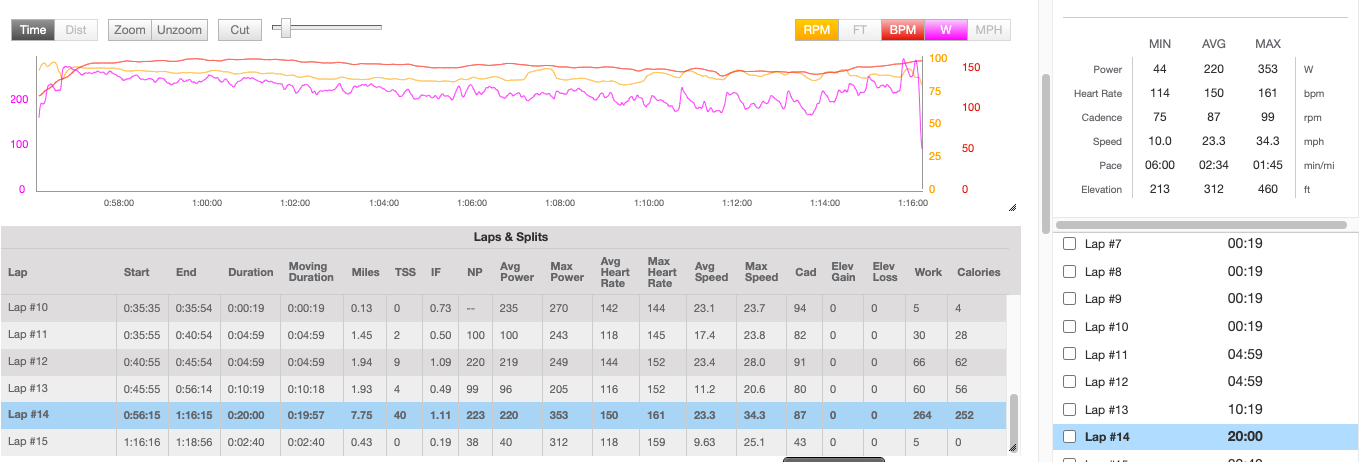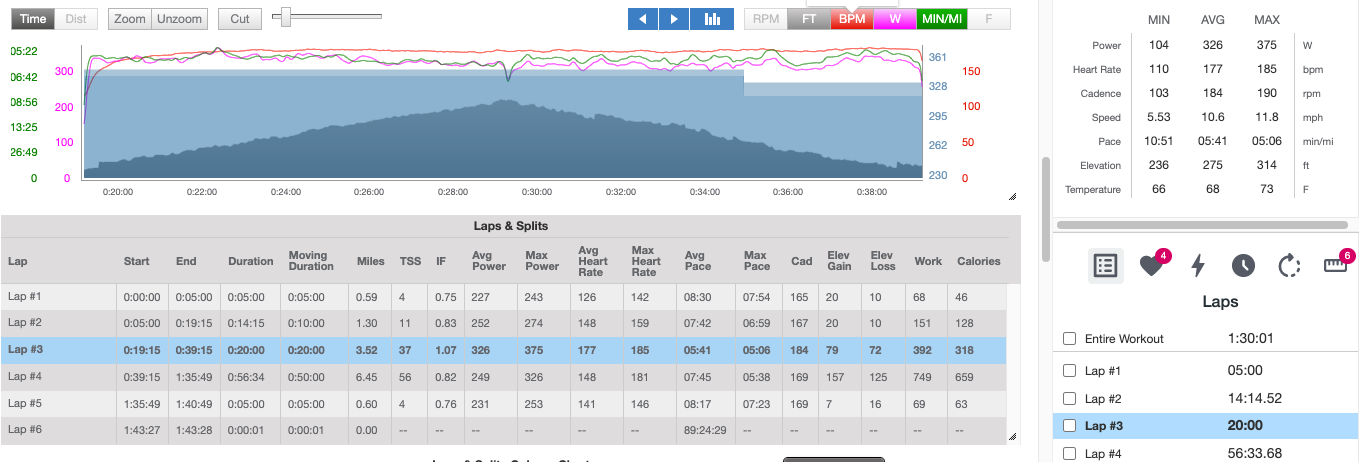First, it is normal for your heart rate during cycling to be lower than heart rate during running, even if you have the same experience doing both.
Additional reasons it’s hard to get HR elevated, and effort elevated, to where it should be on a bike, for folks with more experience running:
Leg muscles fail before cardiovascular system fails.
Use a faster cadence. Related to the above, cadence requires intentional action in cycling. In running it just happens naturally. Shift one gear easier. Increase cadence. Maybe two gears. Peak efforts on a bike require higher cadence to really push HR and effort very high, to sustain power when it really starts to suck.
**Learn how to hurt on a bike. It’s different. Here’s how it’s different: **When you’re on a bike, it’s easy to slip into “not hurting” when you should be hurting. It’s easy to accidentally slack, when you don’t notice.
Reason: You can coast. Even further, there’s more interaction with traffic, intersections, etc. And there are draft benefits. All reasons to accidentally take it easy for a sec and never get to that place of suffering well.
In running, its very easy to learn to suffer because if you overcook the pace early in a run, and later encounter a hill, if you don’t learn to suffer, you’re going to be walking, or traveling at an alarmingly (usually termed “embarassingly slow,” but I don’t think it is, and I don’t think other people should either) slow jog.
On a bike, if you overcook your effort a bit, you can take a couple soft pedals and reduce your effort to less than that of even walking. You can’t do that when you’re not on a bike. SO, to find yourself bleeding through your mouth on a bike, you have to REALLLLLY intentionally overcook an effort or be on a long and unrelentingly steep hill that forces you into max effort. If you don’t live in an area that has hills like that, then you have to be absolutely drilling it on the flats, and then settle back into firm aerobic riding and back and forth, etc. etc. That all happens naturally when you run. But the psychological penalty for letting the effort drop on a bike for a few seconds is: you’re still rolling almost as fast as you were before. If you stop running, you’re standing still and hating yourself for stopping.
Most of the successful runners I’ve seen on a bike have learned to suffer well by going on group rides that are above their pay grade and clinging for dear life to the wheels in front of them. As a runner, you let the person inch away if they use a silly pace. As a cyclist, you just hang onto the wheel and try to stay in the draft. It’ll teach you to hurt to chase excellent riders up big climbs and hang on for dear life to their wheel. But the mindset has to switch. In running, it’s a mindset of ‘preservation’ because the consequences of “blowing up” are that you’re survival shuffling home. On a bike, you can still get home at a pretty good pace if you just keep the pedals turning at a walking level effort. The consequences are much less severe for making silly moves in cycling.
So SELL OUT and hold the wheel. Overcook efforts and pay the price. Hang on longer than you think you can or should. Tooth through the lip to just stay on the wheel another second.
Hope you enjoyed all that. I did not edit. 
(your heart rate may still be lower, but it’ll be closer)

